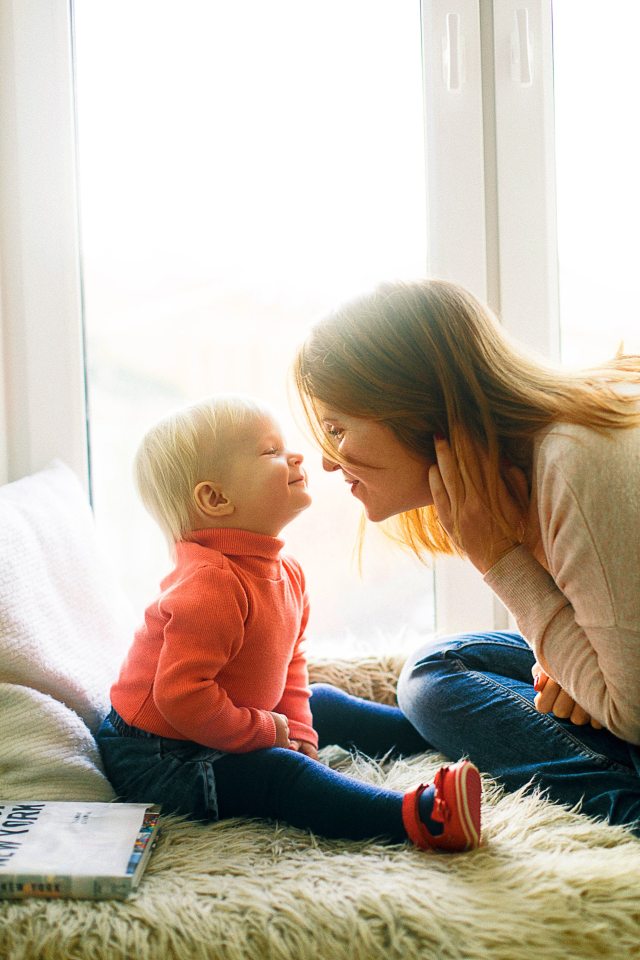We’ve all heard that mindfulness is great for de-stressing our life. But can mindfulness also be good for kids? Absolutely! In fact, many schools teach some version of mindfulness to help students of all ages cope with stress, build relationship skills, and improve self-worth.
We can give kids the same benefits at home by incorporating mindfulness into their daily routine. Even if kids are too young to understand the word, they get the concept when they see us model mindful behavior. What’s more, by helping our kids learn valuable mindfulness skills, we inject some much-needed mindful relief into our own busy schedule! Here are four easy ways to get started.
1. Pay attention. The essence of mindfulness is learning to be where we actually are. When it comes to our kids, this means setting aside time every day to give them our undivided attention. Sure, we have to teach them to put away their toys, pick up their clothes, and do their homework. But we also need to let them know that we value them as human beings. We do this by finding uninterrupted time—maybe at the dinner table or during the bedtime routine—to actually see and listen to them. When we give our kids our undivided attention, we teach them how to focus, how to be respectful of others, and how to value themselves as worthwhile individuals.
2. Cultivate compassion. Young children are naturally self-centered. It takes time to develop kindness, empathy, and compassion, important emotional skills that promote healthy relationships. We can use mindfulness to help kids develop those skills by encouraging them to pay attention to their feelings. We can say things like “How did that make you feel?” or “It’s okay to be sad (or angry or scared).” We can also open up about our own emotions, letting them know that we, too, have feelings. Finally, we can ask them to imagine what others are feeling. Role-playing with puppets and other favorite toys can help young children connect on an emotional level, while older kids enjoy exploring the feelings of characters in books, movies, and TV shows. By planting seeds of compassion, we help kids grow into caring, emotionally intelligent adults.
3. Spend time in nature. Kids are instinctively engaged by the natural world—whether it’s the sky, the sea, a city park, or even a bug on a blade of grass. Nature is the great sustainer and connector, tangible evidence of the interconnectedness of all things. Through the mindful practice of nurturing kids’ connection with the natural world, we give them a foundation for sorting out what’s real and lasting as opposed to what’s superficial and fleeting. What’s more, helping kids see themselves as part of a greater whole—a basic tenet of mindfulness—nurtures their mind and spirit and promotes personal growth.
4. Practice patience. If we had to express mindfulness in a single word, “breathe” would be a good choice. After all, focusing on the breath is a time-honored way to get out of an emotional spiral and focus on the present moment. It’s also a reminder of the importance of patience. Although we live in a world of instant gratification, kids—like all of us–need to learn patience in order to cope with adversity, interact successfully with others, and set and achieve goals. Something as simple as explaining that the cake in the oven takes time to bake can help kids appreciate the concept of patience. And when they insist that they want it now, we can give them a hug, remember that growing up takes time, and remind ourselves to “just breathe!”
Finally, making mindfulness part of your parenting toolkit need not be complicated or time-consuming. In fact, it’s more of an attitude than a “to do” list. By incorporating mindful behaviors into your own life, you teach kids valuable skills that will pay big dividends for years to come.











